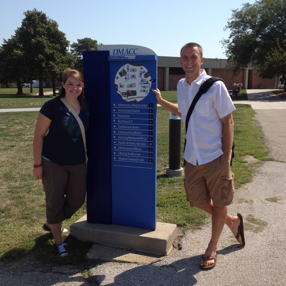View IVCF Central Region Scouting 2012 in a full screen map
What if Jesus had given a different “great commission”?
Imagine the scene. The eleven disciples are likely still reeling from the dizzying effects of the last few weeks: betrayal, murder, failure, suicide, disillusionment, doubt, and now appearances of hope. Perhaps because they have no where else to turn, they find their way to “Galilee, to the mountain where Jesus had told them to go”, and there he is. They see him and do all they know how to do–they worship and doubt.
Unwilling to let them merely look on him from a distance, Jesus “came to them” and issues perhaps the most compelling command in history– “Go and make disciples of all nations…”– and though impossible to believe at the time, their actions set in motion a movement that will one day fulfill that command.
But what if Jesus had followed conventional wisdom and given a different command?
Consider what Jesus could have said. Instead of “go and make disciples of every nation”, could he not have said, “Go back to the 120 disciples in Jerusalem and focus on them…”
If I’m honest, that’s likely what I would have said–focusing attention on what was already and attempting to build on that.
But Jesus was (and is) an apostolic genius, and here we see that brilliance on full display. Rather than focusing his disciples on what was (the 120 disciples in Jerusalem), he unswervingly commands them make disciples of all nations, and in a moment reframes our starting place for apostolic mission–not what is, but what isn’t yet. Fundamentally, it’s a question of “what are we responsible for?”, and Jesus’ answer is a resounding “all of it!”
Continue Reading










